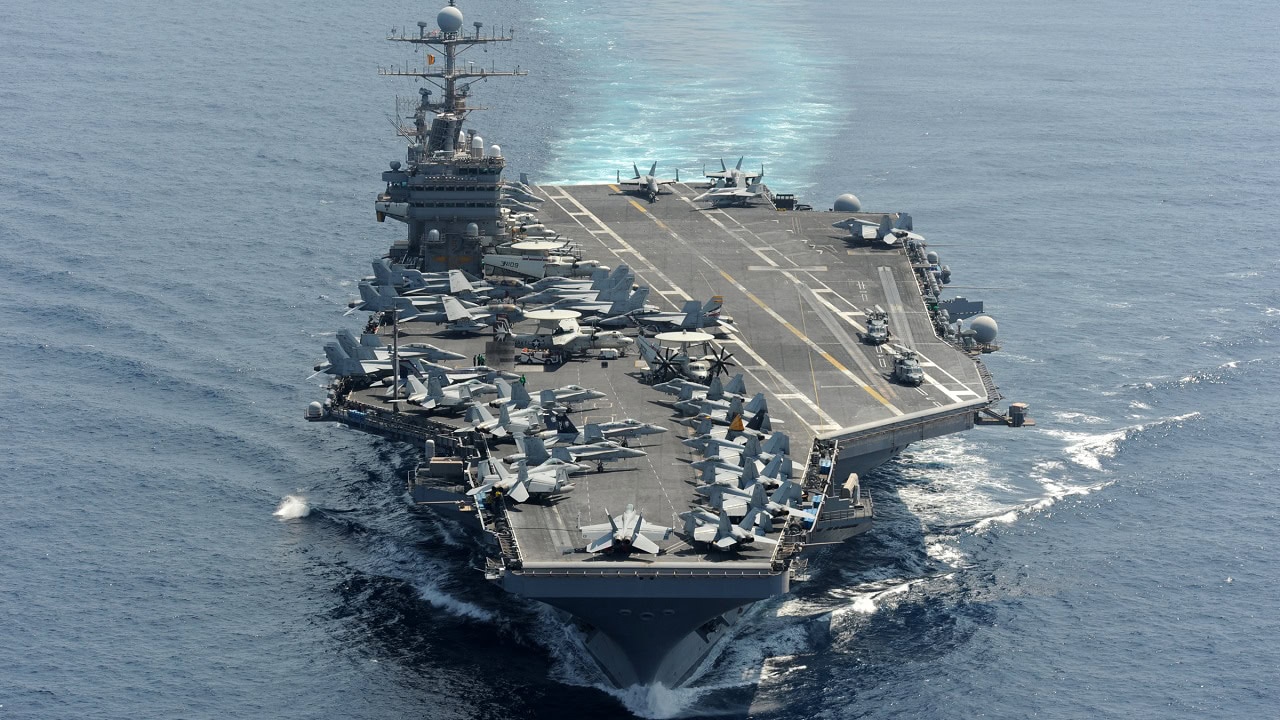We support our Publishers and Content Creators. You can view this story on their website by CLICKING HERE.

America Should Strike a Deal to Take Over Russia’s Syria Tartus Naval Base: The 53-year rule of the Assad family is over. Assad has fled, with Russia media reporting he is in Moscow along with his family. It is an end to an era not only for the Assads, but for Syria’s Alawi, the minority Shi’ite offshoot from which he hailed. The victorious Syrian opposition leaders can say they will not retaliate, but Alawis would be foolish to believe them. First, insincerity is common in the Middle East. Just like Turkish leader Recep Tayyip Erdogan did two decades ago, Hay’at Tahrir al-Sham leader Abu Muhammad al-Jawlani may simply be playing the West for fools by telling analysts and diplomats what they want to hear while he consolidates power. Second, the Assad regime murdered hundreds of thousands of Sunni Syrians. Blood feuds run rife, and ordinary Syrians may not temper their anger because a new leader urges moderation.
On December 7, 2024, President-elect Donald Trump took to his Truth Social to opine, “THIS IS NOT OUR FIGHT. LET IT PLAY OUT. DO NOT GET INVOLVED!” With the opposition now victorious, Trump should reconsider. He is a dealmaker, and there is a deal to be had.
Most Syrian Alawis live in Latakia, the region of Syria along the Mediterranean Coast north of Lebanon and south of Turkey-occupied Hatay (Iskenderun). Latakia is, not by coincidence, home to Russia’s naval base at Tartus. While Russian President Vladimir Putin says that Russian ships are still at Tartus, reports out of Syria suggest Russians stationed there are leaving, and not necessarily in an orderly fashion as to return home to Russia likely means instant redirection to the Ukrainian front.
Realists like Trump believe there are no permanent friends or enemies, just mutual interests, and the upheaval in Syria has shuffled the interests. The Alawis’ chief interest in survival, not Iran’s “Axis of Resistance” or playing Putin’s proxy. Trump should offer a deal: The United States would support Alawi autonomy in Latakia to mirror the Kurds’ autonomy in northeastern Syria. The U.S. Navy would be willing to defend the Alawis with air power should Syrian Sunni forces seek to push into the region. In exchange, the United States would take over the Russian Naval base at Tartus.
This would kill two birds with one stone: First, without a base in the Eastern Mediterranean, the Russian Navy could no longer easily ply its waters, and would instead remain in the Black Sea where the Ukrainians could pick them off if Putin does not make peace with reparations. Second, as the Eastern Mediterranean grows in strategic importance, a turnkey base could be just what the United States requires to complement its permanent presence in Souda Bay and Alexandropouli, Greece. Frankly, a permanent U.S. Naval presence in Tartus would also help contain an increasingly irredentist and destabilizing Turkey.
The notion of taking over a Russian base is not far-fetched. Consider the port of Berbera in today’s Somaliland. In 1962, the Soviet Union signed an agreement with Somalia to upgrade and refurbish the Berbera port. Before the Soviets acquired Aden in 1967, Berbera had become an important Soviet Naval base supporting Soviet operations in the Red Sea and Indian Ocean. When, during the 1977-78 Ogaden War, Somalia changed sides in the Cold War, the United States took over Berbera. It became a base of operations for U.S. Special Forces, a port of call for U.S. ships, and the nearby airfield became an emergency landing strip for NASA’s space shuttle program.
Leasing Tartus could be just as momentous in terms of strategy, and it comes at little cost. What could be better from Trump’s focus on the bottom line for Russian taxpayers to have paid for the facility’s reconstruction and upgrades? Nor does a U.S. presence mean antagonism with the new Syrian regime; if anything, a U.S. no-fly zone over Latakia can give the new Syrian regime in Damascus and excuse to end the civil war.
President Joe Biden may not have the energy or desire in his final month in office to take the lead on foreign affairs, but his National Security Council team should work with Trump’s appointees to preserve human rights and seize an opportunity to advance U.S. interests for a generation.
It’s time to replace Russia as Latakia’s protector and Tartus’s lessees.
About the Author: Dr. Michael Rubin
Michael Rubin is a senior fellow at the American Enterprise Institute and director of policy analysis at the Middle East Forum. A former Pentagon official, Dr. Rubin has lived in post-revolution Iran, Yemen, and both pre- and postwar Iraq. He also spent time with the Taliban before 9/11. For more than a decade, he taught classes at sea about the Horn of Africa and Middle East conflicts, culture, and terrorism, to deployed US Navy and Marine units. Dr. Rubin is the author, coauthor, and coeditor of several books exploring diplomacy, Iranian history, Arab culture, Kurdish studies, and Shi’ite politics. The author’s views are his own.

 Conservative
Conservative  Search
Search Trending
Trending Current News
Current News 





